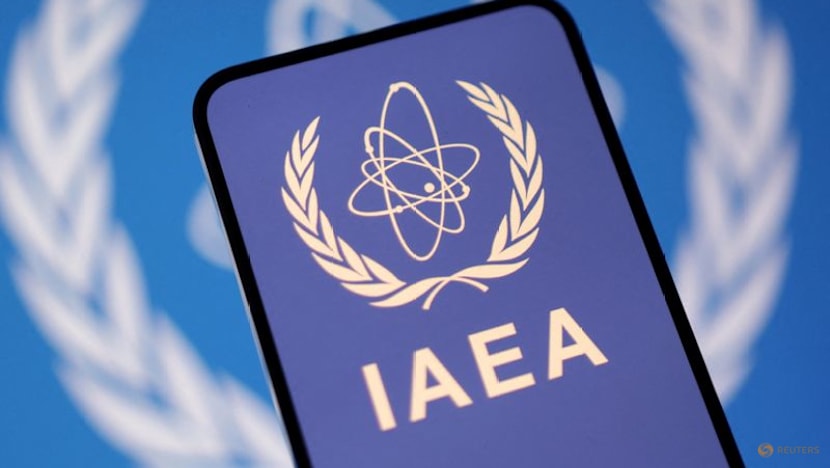Indonesia says it is in touch with nuclear watchdog, United States on radioactive shrimp

The International Atomic Energy Agency (IAEA) logo is seen in this illustration taken on Jun 16, 2025. (File photo: REUTERS/Dado Ruvic)
JAKARTA: Indonesia is providing regular updates to the global nuclear watchdog and the United States regarding its probe into the detection of a radioactive element in a consignment of shrimp, Indonesian authorities said on Tuesday (Sep 30).
Indonesia has been investigating traces of Caesium 137 found in a batch of shrimp shipped to the United States by a local company in August. Last week, the same contaminant was also found in a shipment of cloves, the US Food and Drug Administration said.
"Indonesia is in touch with the International Atomic Energy Agency and US authorities and sharing findings of the task force," coordinating minister for food Zulkifli Hasan told journalists.
The US FDA's website says Caesium 137 is a radionuclide present in the environment mainly as a result of nuclear testing or accidents such as Chernobyl and Fukushima.
Indonesia does not possess nuclear weapons or nuclear power plants.
Indonesia is also looking into the latest findings from the US FDA regarding the clove exports, said Bara Hasibuan, another official from the ministry for food, speaking to journalists alongside Hasan.
The agency has already barred the exporting company - PT Natural Java Spice - from sending spices to the United States.
The comments followed a meeting to discuss the investigation into the shrimp contamination, chaired by Hasan.
In connection with the contaminated shrimp, Indonesia has conducted further inspections and health checks in an industrial area found to have been exposed to radiation, Hasan said.
Indonesia established the task force after the US FDA issued an advisory to American consumers, distributors and sellers not to eat, sell or serve frozen shrimp imported by Indonesian company PT Bahari Makmur Sejati.
The task force found the contamination occurred only in Cikande, an industrial area located on the outskirts of Jakarta, Hasan said, adding that they will also probe staff at a scrap metal factory considered to be the source of the caesium.
He did not elaborate on how the shrimp packages could have come into contact with the scrap metal factory.
The task force also examined over 1,500 workers and community members in the area, and found no serious impact.
"The government ensures that quality control mechanisms for fishery products remain in place and operate in accordance with national and international standards," Hasan said.












